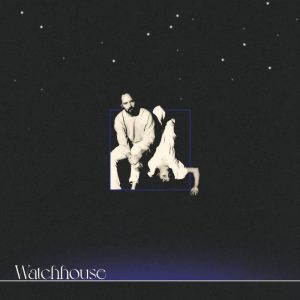
When a band changes its name there’s always the feeling they’re desperate for a new start, yet nothing could be farther from the truth for Watchhouse. As Mandolin Orange they had managed to create a respected body of work, on that took them from the clubs to the stages of Red Rocks in Colorado. Still, by the end of their last tour in 2019, they had reached a crossroads, Andrew Marlin and Emily Frantz realised nothing seemed to fit what they had become. As Marlin admits, “We’re different people than when we started this band. We’re setting new intentions, taking control of this thing again.”
Starting again, they did everything differently. First, there was the new baby. Taking care of the baby in shifts for the first few months, Marlin ended up watching over the baby all night. “If I didn’t have Ruby in my hands, I had an instrument in them. And watching Ruby sleep, being surrounded by that mystery at night, led to a feeling of magical realism in these songs. I used melodies and ideas I’d never use.”
Then there was Josh Kaufman of Bonny Light Horseman, who ended up producing the album. What started as a band retreat, ended up a few days later as a complete album. With Kaufman at the helm Marlin was able to simply concentrate on the music and the magic. Using drummer Joe Westerlund, guitarist Josh Oliver, and bassist Clint Mullican, new structures and textures led Frantz and Marlin down paths they hadn’t necessarily taken before. ‘Better Way’ starts off as a meditation regarding on-line occurrences, yet also takes a turn off the bluegrass pathways into something more akin to loving, symphonic Frippertronics.
The initial groove of ‘Upside Down’ sounds remarkably like vintage Neil Young, but quietly transmogrifies in a direction that shifts the equation several decades down the road before returning to the initial groove for the songs ending. Frantz handles the stylistic shifts as if this sort of thing happens every day. Clearly these kinds of sonic priorities are not exactly what one would expect, yet they happen so subtly one never seems to realise how radical they can be.
The moments keep coming up in ways that make you wonder if you are really hearing what you seem to be. ‘Beautiful Flowers’ seems to be a simple guitar ballad about a butterfly crushed on a car windshield. Yet deep in the mix there appears to be horns casting a spell that brings the song into another dimension.
Over the course of these nine songs Watchhouse cast a magical spell that is impossible to ignore. What Emily Frantz and Andrew Marlin have done is actually a radical reimagining of what they can be as musicians. Mandolin Orange is no more, yet there is no need to mourn. Remnants of the past still remain, but they are now so much more. Watchhouse illustrates what they can be now that they are no longer constrained by what they were before.
